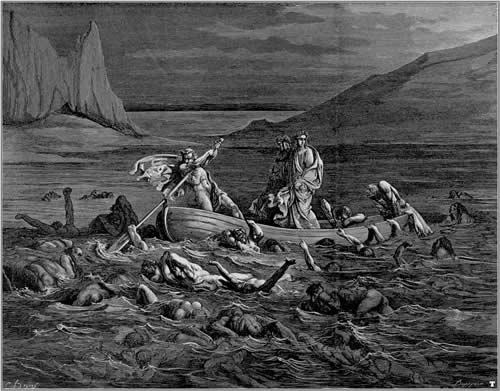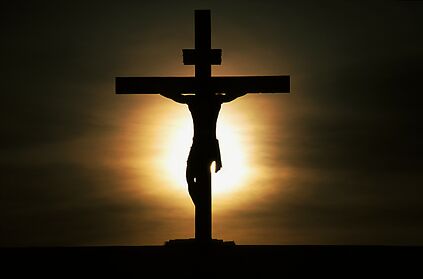"Heroes never die" - Bryan Josh, Mostly Autumn, 1998.
Even from a very young age, mythology and tales of folklore has been my first love. Once I learned to read (about age seven I think) I devoured all the books I could on Greek, Roman, Celtic, Native American and most especially Norse legends that I could, ranging further and further afield as I explored the vivid and colourful tales of lands long vanished and peoples long passed away. These stories spoke to me as no others did; sure, there were fairy tales and fantasy, and they were great. But these were things that people
believed happened. Fanciful, yes. Interpreting natural phenomena as the will or actions of supreme deities, certainly. But they always entertained.
And that's what I've loved about mythology. I'm not one of those who wants to explain or dig into WHY this race believed that, or why the other people worshipped a particular god or pantheon of gods, nor what these gods were meant to represent. I preferred, and prefer, to view them as wonderful tales passed down to us by our forefathers, speaking to us across the ages and reminding us of a time when everything could not be explained, and some things were just seen as being in the hands of all-powerful and inscrutable gods.
Odysseus. Hercules. Thor. Beowulf. Sigurd. Zeus. These are the names that still have meaning for us now, thousands of years since their stories were first written. The battles they fought (real or imagined, or even embellished), the struggles they contended with, the things they saw and the things they did, all have gone to make up part of ourselves, the world we live in today, and even now, in our enlightened twenty-first century, digital online world, there is still room for them, if only in Hollywood blockbuster movies, comics and books. These are names that will never fade from human memory, and deeds that will be spoken of again and again.
So, if you have any interest at all in mythology, or would like to learn about the legends of the past, then this could very well be the place for you.
Welcome, one and all, to
Trollheart's Journal


When I began this journal back almost six years ago now, I really didn’t think it through. I had no idea of any sort of structure for it, no real clue how to organise it and as a result the approach was scattergun at best, confusing at worst. My initial design also meant that each post covered just one figure, giving anyone looking for actual information on, or researching, mythology a long time to wait before they could get any sort of useful data. Of course, it’s highly unlikely that any of you who were actually reading were also researching; chances are, you were all just reading for entertainment. Nevertheless, details were being leaked out a tiny amount at a time, and that must have seemed frustrating. It also doesn’t make people want to keep coming back, if the information is being doled out in dribs and drabs.
So I therefore propose to begin again. Same journal, same pages, but several years on and a lot learned. This time the entries will be larger and more informative, and based upon some sort of loose structure. I’ll begin by going through each pantheon and giving a rough guide to each. Later on I’ll go into far more detail on the various gods, goddesses, heroes and battles, places and stories in each mythology, but I won’t be doing any scholarly analyses of what these gods represented, or how the ancient people who worshipped and sacrificed to them saw them. This will be a journal based exclusively on telling you about these deities as if they actually existed.
As each god, hero or monster is given their own post(s) I’ll link them in the main narrative, the same with battles, epics, stories, lesson and all other aspects of the respective mythologies. Comment as always welcomed.
Let’s begin then with a discussion on what mythology is. Well, put simply I guess, without reference to dictionaries and whatnot, mythology is a system of tales or stories, sometimes sagas of the exploits of people and even creatures who were once thought to exist by the people of the time. They are usually an attempt by those people to understand, without the benefit of science, the natural world. So thunder bangs and lightning flashes, therefore a god is angry. Crops grow plentiful, so a god is happy. Earthquakes, volcanoes, cyclones are all symbols of a god’s wrath and so on. They are also, of course, used by the prevalent religion to explain, reinforce and disseminate the powers, mercy or other qualities of the gods the priests, monks or whoever serve.
At heart though, without going too deeply into the guts of things, they’re interesting and entertaining stories we can read now and laugh at, but quite often they have some sort of a moral, showing the people that by doing this they achieved that, or by resisting this they avoided that; how kindness and forbearance is smiled upon by the gods, and how resistance to them is punished, how if we live the lives the gods ask or demand of us, we will be rewarded, and of course, if we don’t, we had better watch out, because there is usually (though not always, as we will see) a downside; a dark, evil, hopeless place where we can all end up if we don’t follow the paths of righteousness.
Most mythologies borrow from each other, and there are common strands to just about every belief. Unless we’re talking about a monotheistic society, there’s a pantheon, or collection or family of gods and goddesses, and they invariably all represent or have charge of something - weather, fertility, war, love, travel, beggars - you name it, there’s usually a god for it. The gods almost always live apart from the people they worship, keeping aloof and lordly, like kings watching over their subjects, and most often high up in the sky, up a mountain, on a cloud, making the rather heavy-handed point that they are, figuratively and literally, above us. Most gods and goddesses are brave, and perform extraordinary feats; some visit the mortals and mix with them, even reproduce with them, giving rise to a small race of demigods.
Most gods are seen as capricious and quick to anger, jealous (either of each other or of some mortal who takes the attention off them) and vengeful. They are, not to put too fine a point on it, not to be ****ed with. They mostly don’t care too much about mortals, seeing them as playthings to amuse themselves with, though if one pays them an insult they’re quick to respond, usually with deadly force, occasionally with a sort of evil malice, an appropriate punishment. Look at Narcissus, or Echo, or… well, we’ll come to all of those in due course. Gods usually demand sacrifices, the best way to be sure that their mortals still worship and acknowledge them, and in return will grant good harvests, plentiful women and a top-rate fibre optic broadband signal. Well, maybe not the last. But they’re seen to respond to prayers, possibly in a way the Christian God usually does not. Maybe he hasn’t got the best broadband line like they do.
Different religions, different mythologies treat their females in various ways. Some have them taking part in the adventures, being sometimes as powerful as the gods, or even more so, while some relegate them to just churning out babies and providing points of dispute that allow gods to go to war with each other. I think the Egyptians and the Babylonians have the most powerful goddesses, but again, we’ll get to that. Some gods are warlike, some are pastoral. Some like to instigate battles and glory in bloodshed, some like to sit among the flowers and read or write poetry. Some mythologies are completely self-contained, not touching the Earth at all, and told as a kind of history of another, far-off place, while some will intermingle with the mortals, though few if any ground their tales in the Earth. I think Native Americans would be a good example of a people who do.
Creation myths tend to follow very similar lines. Usually an ancient race of powerful gods, often the fathers of the gods the people worship, battle against themselves or their children, or their children revolt, the end result almost always being the defeat of the elder gods, who are more often than not used to fashion the world. Fathers tend to eat their children, but these children usually manage to escape this fate, and in mythology, as in cartoons, being dead does not really hamper your career, as you can come back from the dead in many, many way, often without any explanation because, you know, you’re a god.
Some mythologies leave everything to the gods. They fight the battles, they divine the secrets, they set the tone. Others need humans to do the heavy lifting, which is where heroes (sorry ladies; it’s almost always males) come in. These can be connected to gods - their mother having lain with a god, making them a demigod - or just devoted to one, or they can be ordinary mortals without any sort of divine lineage at all. They’re often princes or kings (or destined to be) but they can also be monks, simple farmers, anything at all. So you get the likes of Jason and Perseus in Greek myth, Sigurd and Siegfried in German, and Fionn MacCumhaill and Oisin in Irish, to name but a few. And then of course, these heroes need obstacles to overcome, usually guarded by a beast of some sort, bringing all kinds of monsters and creatures into the mythos.
Mythology can cross over and intermix with fairy tales and folklore: returning to Irish myth, the
sidhe are the fairy folk of Irish mythology, and trolls feature in Norwegian myth, as do giants and huge serpents. It’s not much of a stretch to see that the one bleeds into the other, and that fairy tales mostly look back to the beliefs of the people of those times and now couch their figures in softer, less powerful terms, though of course fairies, witches and goblins can all still have a great effect on an unwary mortal. But they’re not worshipped, though they may be still respected, even revered, and nobody sacrifices to them. By the time fairy tales come along, the old gods are dead and have been perhaps somewhat emasculated into elves and fairies and other characters destined to populate children’s literature, and fantasy fiction; something nobody believes in now, if they ever did.
But similarities aside, every mythology has its own brand of interesting tales to tell, brave heroes and gods to introduce, and lessons to teach. Even if we take them (as I do) as nothing more than a collection of fantastic stories to delight and entertain, they’re worth reading and learning about.
So I’d like to kick off then with an article about my all-time favourite mythology, the first one I learned about and took an interest in, and the one I’ll be describing in the next post.




















 Hybrid Mode
Hybrid Mode